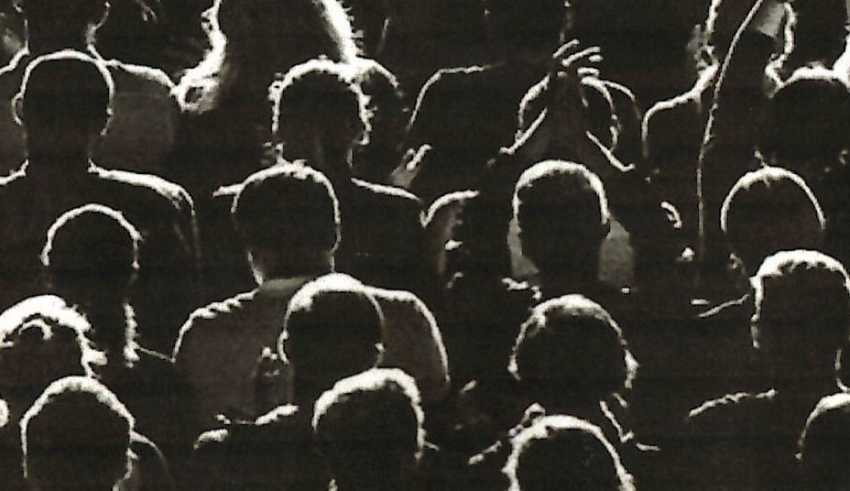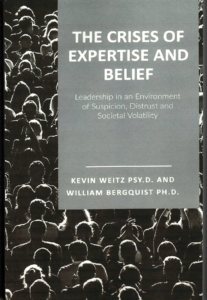
Kevin Weitz, Psy.D. and William Bergquist, Ph.D.
In some ways this is a very short book about the crisis of expertise. In other ways this is a rather long book for it delves into the deep recesses of the crisis, offers suggestions regarding ways to find personal and collective expertise and practical suggestions regarding what to do right now in the midst of the anxiety-filled crisis of expertise. We have conceived of this book as offering a multitude of perspectives and practices – it is a Swiss Army knife with many tools that hopefully yield both insights and guidance for facing the challenges of expertise and belief.
Purchase this Book
 The first section of this book directly addresses the Dunning-Kruger issue of what we do and don’t know—and what experts and leaders do and don’t know. We look for responsible belief in a world o fabricated expertise. Specifically, we offer our views and the views of many other people about belief and the ways beliefs are distorted, manipulated and used to influence others and gain power.
The first section of this book directly addresses the Dunning-Kruger issue of what we do and don’t know—and what experts and leaders do and don’t know. We look for responsible belief in a world o fabricated expertise. Specifically, we offer our views and the views of many other people about belief and the ways beliefs are distorted, manipulated and used to influence others and gain power.
This is a book about the unique challenges that leaders (and all of us) face in our mid-21st Century world. Challenges that we face regarding knowledge and information are great. The experts who try to make sense of and help us address these challenges are often rightly or wrongly suspected. In the last section of this book, we suggest ways in which we can personally and collectively find our own wisdom. Finally, in an afterword, we provide some guidance regarding how professional coaches and consultants might assist us in addressing the crises of expertise and belief.
Here is a summary description of the concepts to be addressed in each of the four sections in this book, as well as in each of the twenty three chapters and afterword.
It is important to note that this book is by and large apolitical. The authors have tried to engage no political agenda, but use a number of well publicized examples that demonstrate key points made.
Section One
Making the Case and Framing the Inquiry: Responsible Belief in a World of Fabricated Expertise
We begin our exploration of expertise and belief by visiting a world in which expertise is often wrongly applied, information manipulated, conspiracy theories rampant and in which leaders and experts are fallible. This is the state of our current world. It is a world that is not easily navigated.
Chapter One –A Crisis in Expertise and Leadership
“Are we all stupid?” This first chapter focuses on why we (especially as lay-people) are often blatantly ignorant on many topics of importance. More importantly, we are unaware of our ignorance, and therefore much more susceptible to misinformation and negative influence from malevolent individuals. There is an important phenomenon in our modern digital world: information – and misinformation – is rapidly accessible. As a result, lay-people are especially susceptible to thinking they know a lot about a particular topic, while unknowingly being woefully ignorant or misinformed about the subject. This mis-informed sense of knowledge is sometimes accompanied by a zealous (and sometimes aggressive) defense of their incompetence.
Chapter Two – What is an Expert and what is Expertise?
Most of us are heavily dependent on experts! We rely on them for guidance on medical issues, financial investments, who to vote for amongst many other day-to-day decisions. But what is a true expert and how do we decide that an individual meets a certain standard for us to trust her advice? Also, if the individual does indeed meet a standard that qualifies her as an expert, what do we do if this person provides advice on a topic outside of their area of expertise? Indeed, what is considered “expertise” in the first place? This chapter attempts to provide answers to these questions.

















